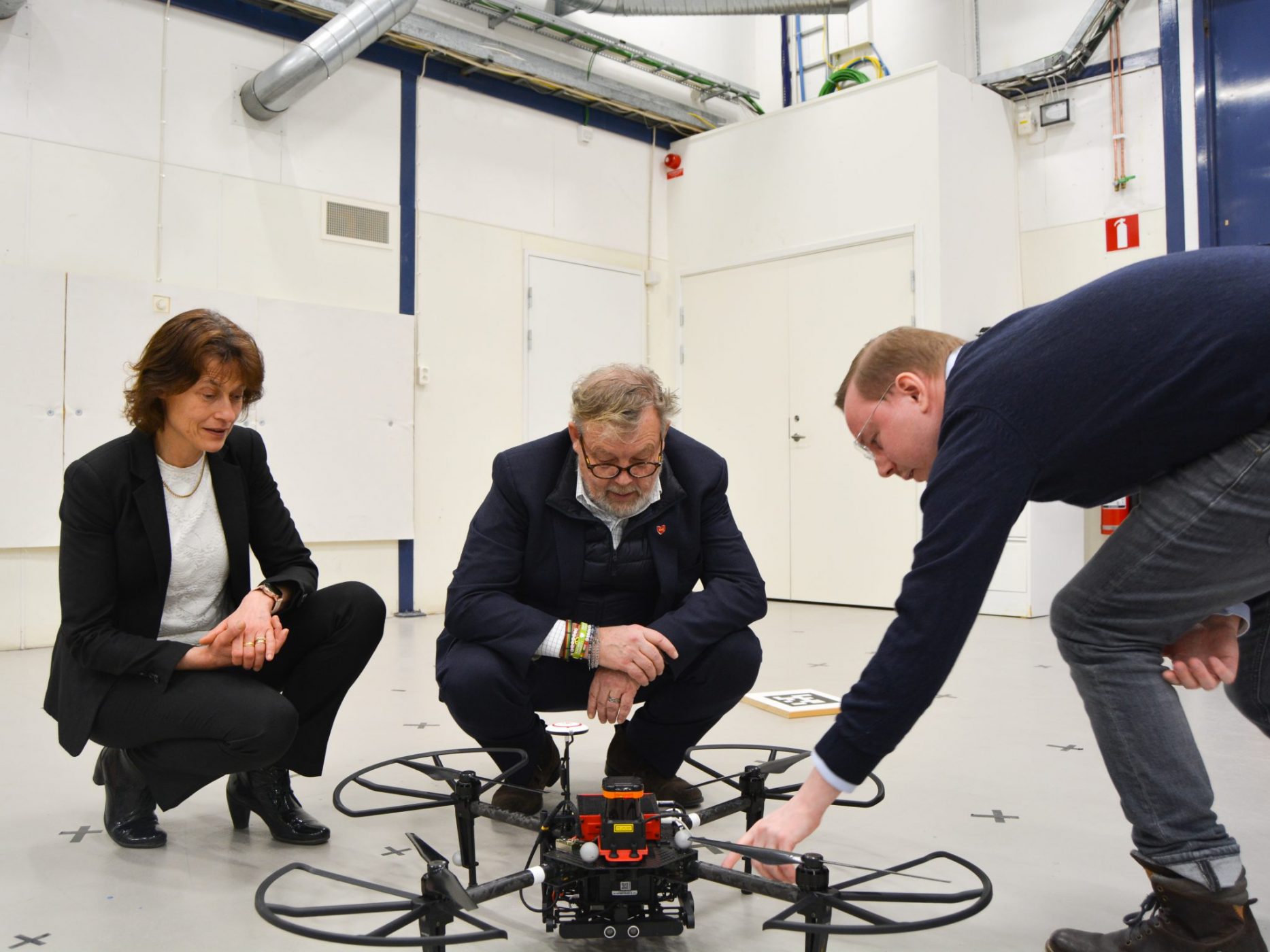Sara Mazur, chair of the WASP programme, and Peter Wallenberg Jr, chair of the Knut and Alice Wallenberg Foundation, are on tour visiting the WASP universities. On the agenda are meetings with doctoral students and researchers, interspersed with a selection of WASP research demos.
So far, Örebro University, KTH Royal Institute of Technology and Linköping University have welcomed the duo. Next in line are Chalmers, Lund University and Umeå University. With three out of six visits done, their main impression is “Wow!”.
“The purposes of this tour are to meet the WASP researchers, see their environments and learn more about the research being conducted in the programme,” says Peter Wallenberg Jr.
“And,” continues Sara Mazur, “to get a solid picture of what we need to develop further to constantly be in the forefront. It is of great importance that the researchers feel that we welcome their feedback.”
Avoiding drones and going for a drive in Singapore
The Linköping visit started in Professor Patric Doherty’s UAV lab where, PhD student Olov Andersson gave a demo of his work on obstacle avoidance under uncertainty. This project uses techniques from machine learning and optimisation-based control.

Photo: Natalie Pintar
The group then continued to the vehicle lab of WASP director, Professor Lars Nielsen. He explained that several of the research projects in the lab have been made possible thanks to cooperation with industry, and emphasised the mutual benefits obtained from such collaboration.

Photo: Natalie Pintar

Photo: Natalie Pintar
Last demonstration before lunch physically took place in Linköping, but virtually in Singapore, when Professor Michael Felsberg demonstrated the value of synthetic environments. In a widely used driving simulator, an accurate map of the NTU Singapore Campus let the researchers develop novel machine learning methods for self-driving cars. It is a promising technique – an efficient, reproducible and safe way of testing new algorithms.
These simulator tests are preferable to testing with actual cars out on the streets or testing grounds, which would come with some accidents and a lot of engineering time.

Photo: Natalie Pintar

Photo: Natalie Pintar
“These visits have shown me the huge range of experts we have in the programme, on all levels. We have doctoral students coming from the other side of the world just to work on their thesis in WASP, and we have postdocs, new recruits, and researchers with established research groups in Sweden. The quality of their work is so high and it is hugely gratifying to be part of creating this,” Sara Mazur concludes.
Peter Wallenberg Jr agrees:
“It’s like, wow, my mind is so full of all the impressions. I thought I had an idea of what AI is, but now I start to see the true picture of its potential. I’m very impressed by the expertise that is out there in Swedish universities, and very pleased that we have succeeded in bringing the private sector into the WASP Graduate School. We now begin to see the very important effects that the WASP initiative will have for Sweden on a national level. Again, this really has been a wow-sensation.”

Photo: Natalie Pintar
Published: February 13th, 2020



